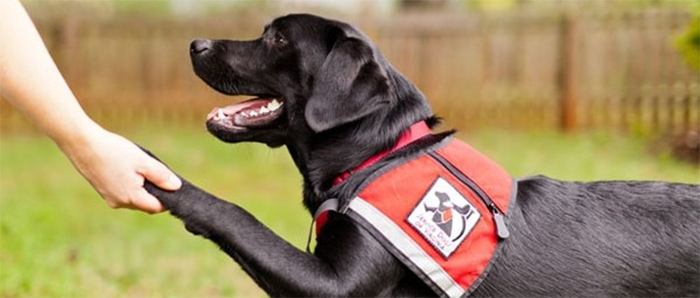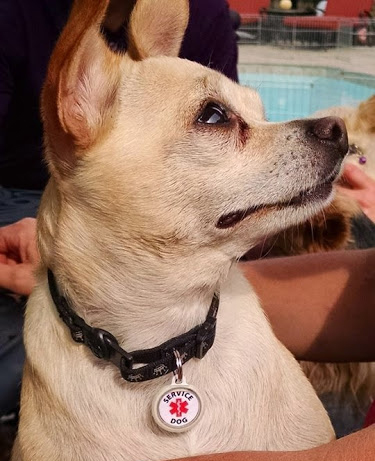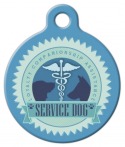
While nearly every pet owner will agree that pets assist them in more ways than they can count (knowing when something is wrong, barking at people who shouldn’t be around), actual working service dogs are trained to provide assistance that goes above and beyond the natural doggie instincts. So the question of what makes a dog a service dog is one that can’t be answered and explained enough.
There are in fact several different kinds of service dogs, including:
• Medical Response Dogs
• Mobility Dogs
• Psychiatric Service Dogs (PSDs)
• Hearing Dogs
• Autism Therapy Dogs
• Guide Dogs
• Emotional Support Dogs
• Working Dogs
| The American Disabilities Act defines a service animal as “a dog that is individually trained to do work or perform tasks for a person with a disability.” If they meet this definition, animals are considered service animals under the ADA regardless of whether they have been licensed or certified by a state or local government. Their individual training varies depending on what type of service dog they were trained to become, meaning their abilities vary from one to the next. The difficult information for most to understand is that a trained service dog is not a pet. They have a job and a very serious functionality in providing their disabled human a service that aids in saving their life. |  |
Why Fake Service Dog Tags and Certification Exist?
There are a number of very successful and seemingly legitimate companies who have made thriving businesses selling false service dog tags, vests, and certification paperwork. If you Google ‘Service Dog’ or ‘Service Dog Certification’ you’re met with these. They’ll register your pet, send your pet meaningless paperwork and other service pet schwag to really seal the deal for a small fee, anywhere from $20-$100, without training or even meeting your pet.
This has led many pet owners to either:
a) Believe All they need is this certification for their pet to officially be a trained service dog.
b) Buy it for false proof so their pet can attend an event or accompany them to the local bakery.
In the meantime, those humans with disabilities and needs for trained service animals are questioned and their service pets not taken as a legitimate need.
"Animals whose sole function is to provide emotional support, comfort, therapy, companionship, therapeutic benefits, or to promote emotional well-being are not service animals. ~ Service Dog Central"
There is a very big difference between a loving pet who acts as a companion and a trained service animal who can alert their human to take their medication, is able to pull a wheelchair, is trained to calm someone with Post Traumatic Stress Disorder while having an attack. You see the difference?
Resources for Service Dogs Questions, Certifications, Needs, and More:
1. Service Dogs CentralHere at Dog Tag Art we do offer a selection of personalized pet tags ranging from disabilities of the animal themselves to those of their human. The service dog tags we do offer are in no way meant to be used as a certification but rather to act as an informative aid. Here are some of the pet ID tags we do offer. They can be very helpful in assisting you and your service dog.
2. Please Don’t Pet Me
3. Pet Partners



With loving paw-printed hearts ~Dog Tag Art
| Tiffany Narron and her precious pooch Bella Blue had some questions about what it truly meant to be a Service Dog. This led them on a quest to "dig" up the facts on Service Animals and seperate the truth from the common misconceptions. They both feel it is very important to inform people about these wonderful helpers and how to make sure they are properly identified and trained. |

